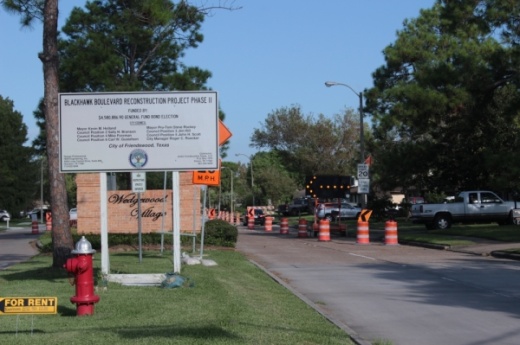“The voter-approved street sales tax has been an enormous help to accelerate street maintenance in Friendswood,” Mayor Mike Foreman said. “It is $1.65 million dollars worth of work that either would not have been undertaken, or the funding would have had to come from other sources. Having the street maintenance sales tax kept us from raising taxes or reducing city services.”
The additional 0.375% sales tax goes directly to maintenance and repair for existing streets. In fiscal year 2018-19, the street maintenance sales tax covered almost 40% of all street maintenance expenses.
Foreman said the sales tax spreads the burden of maintenance beyond just Friendswood residents, and it seems fair to him that people from outside Friendswood who shop in the city contribute the additional 0.375% toward the streets they drive on. The total city sales tax rate is 2%.
Over the past two fiscal years, more than $3 million has been collected for street maintenance from the sales tax, said Jeff Newpher, a communication specialist for the city.
“I think reauthorizing the sales tax for street maintenance is a great idea,” Foreman said. “I’m in favor of giving voters the opportunity to reauthorize it, and I hope my fellow council members will agree, so it will appear on the May 2020 ballot and continue to be collected.”
At the Friendswood City Council meeting on Jan. 6, city staff said the item would be up at the February meeting to get it on the May ballot, if council wishes. The deadline to put the item on the May ballot is Feb. 14.
In FY 2018-19, the sales tax for street maintenance generated $1.66 million. Almost all of it was spent on street repairs, with over $7,000 left unspent, which was reallocated for FY 2019-20.
Newpher said the condition of the neighborhood roads is a very big undertaking, and the city works hard to maintain them.“The roads that people drive on are of the utmost importance when it comes to things that the city provides,” Newpher said.
Friendswood hired a company to do a street rehabilitation analysis, through which the streets were ranked by condition. This ranking was the basis for the prioritization of road repairs over the last two years.
Newpher said the prioritized roads were those in the worst condition and the roads surrounding them.
“You never finish doing street maintenance,” Newpher said. “It’s always triage between routine repairs and grand plans to replace whole roads, but you do it all simultaneously.”





